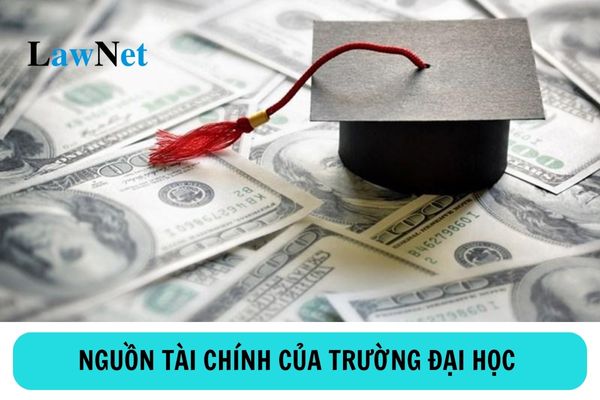Vietnam: What are the financial sources of a university? Do public universities have financial autonomy?
What are the financial sources of a university in Vietnam?
According to Article 64 of the Law on Higher Education 2012, as amended by Clause 32, Article 1 of the Law on Amendments to Law on Higher Education 2018, the financial sources of a higher education institution include:
- The university's revenues, including:
+ Tuition fees and revenues from training, science and technology activities and other ancillary training services;
+ Payment from the State, other organizations and individuals for performance of training and research contracts; completion of tasks given by the State;
+ Revenues from investment of domestic and foreign entities; annual additional revenue from operation of the institution;
+ Revenue from business operation, social activities, financial investment (if any) and other lawful sources of income;
+ Loans.
- Sponsorships, donations, gifts from former students, domestic and foreign entities.
- State funding (if any).

What are the financial sources of a university in Vietnam? Do public universities have financial autonomy? (Image from the Internet)
What are the regulations on financial management by higher education institutions in Vietnam?
Under Article 66 of the Law on Higher Education 2012, as amended by Clause 34, Article 1 of the Law on Amendments to Law on Higher Education 2018, the financial management by higher education institutions is regulated as follows:
- Higher education institutions shall comply with regulations of law on finance, accountant, audit, taxation, asset valuation and financial disclosure.
- The school council of a financially autonomous public higher education institution shall decide the use of its sources of income as follows:
+ Use lawful incomes other than state funding to invest in training, scientific research and technology transfers projects;
+ Decide the spending of revenues from tuition fees, service charges, contract performance, payment by the State, including payment of salaries, expenditure on academic activities and administration in accordance with internal spending regulations of the institution.
- Higher education institutions that receive state funding to perform certain tasks given by the State have the responsibility to manage and use the state funding in accordance with regulations of law on public property and public financial management.
- At least 25% of the difference between revenue and expense shall be used to reinvest in the higher education institution, educational activities, building facilities, purchasing equipment, training lecturers, education managers and employees, providing assistance for students and fulfilling social responsibility . For non-profit higher education institutions, the difference between revenue and shall be considered non-distributable property and will be used for reinvestment in such institution.
- Higher education institutions shall audit and publish their financial status and use of their sources of income as prescribed by law.
- The Government shall elaborate Clause 2 of Article 66 of the Law on Higher Education 2012, the degree of financial autonomy of publish higher education institutions other than those mentioned in Clause 2 of Article 66 of the Law on Higher Education 2012; the mechanism for giving tasks, placing orders or inviting bids for provision of public services covered by state budget; regulations on foreign cooperation and investment in higher education; withdrawal and transfer of stakes in higher education institutions; assurance of stability and development of higher education institutions.
- The Ministry of Education and Training and competent authorities shall inspect the management and use of sources of income by higher education institutions.
Do public universities in Vietnam have financial autonomy?
Under Article 32 of the Law on Higher Education 2012, as amended by Clause 17, Article 1 of the Law on Amendments to Law on Higher Education 2018 the rights to autonomy and accountability of higher education institutions are regulated as follows:
Autonomy and accountability of higher education institutions
1. Higher education institutions shall have autonomy and accountability as prescribed by law. Organizations and individuals shall respect and protect autonomy of higher education institutions.
...
Thus, public universities can exercise financial autonomy if they meet the conditions as prescribed. To be specific:
- have a school council; has certification of quality issued by a lawful training quality assessment organization;
- have issued and implemented internal rules and regulations; finance regulations; other internal regulations and procedures; has policies on quality assurance and fulfillment of standards prescribed by the State;
- assign specific autonomy and accountability to every unit and individual in the higher education institution;
- publish the conditions for quality assurance; inspection results; the ratio of graduated and employed students as prescribed by law.

